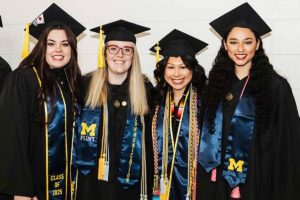The roots grown in Flint, Michigan, are strong for our graduates. For one graduate, they were strong enough to draw her 2300 miles across the country, from Seattle, WA, to lend her voice in raising awareness of the water crisis and to support Flint residents. During the time of Democratic Presidential Debate, Tiffany Williams, a 2011 sociology graduate, hosted a peaceful demonstration march and encouraged area citizens to express their feelings. Read below to get to know this passionate graduate.
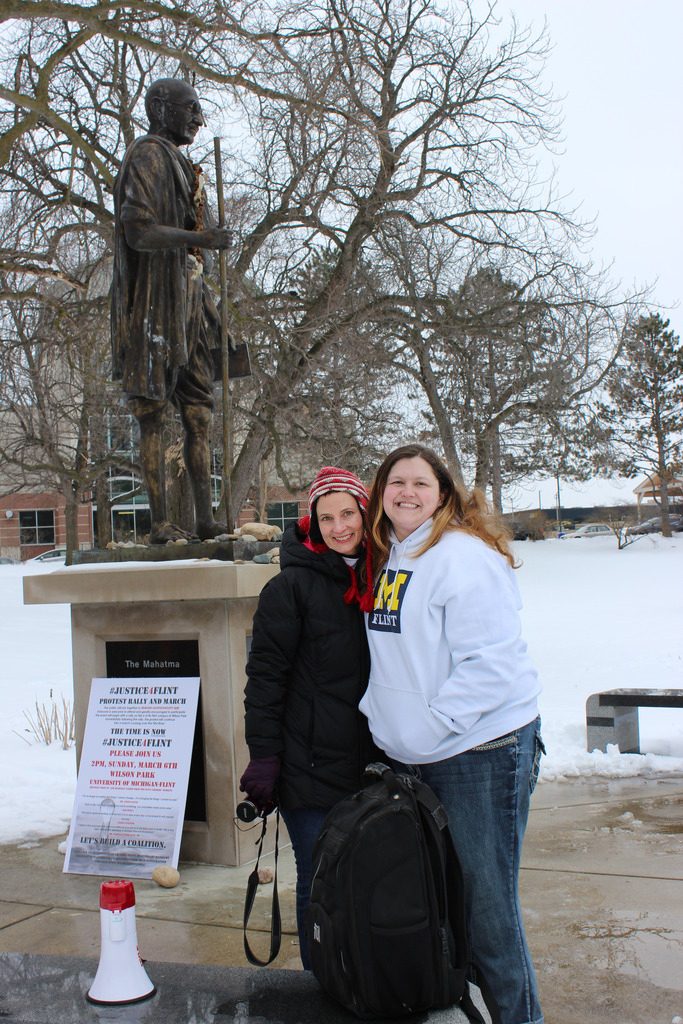
Name and degree: Tiffany Williams. I majored in Sociology and graduated at the end of 2011.
What are you doing now?
I currently work as a Resource Coordinator at a software company in the Seattle, WA area. Sometime in the future, I would like to work for a non-profit, eventually starting my own non-profit organization. Outside of my regular work, I have been actively pursuing social justice for the people of Flint during the continuing water crisis.
However, back home in the Seattle region, I am also starting to get involved in efforts to help the homeless population. Homelessness has become and increasing issue; particularly on the west coast.
How did your University of Michigan-Flint education prepare you for what you are doing now?
My education in Sociology at UM-Flint is the main reason that I pursue activism and non-profit work today. It was not until I began to study at U of M that I became informed about how society functions; including gaining an understanding about the social inequalities that exist today. This knowledge is the foundation that has enabled me to pursue social justice missions back in Flint, as well as in my current communities in Washington state.
Who made the biggest impact on your UM-Flint career?
Virtually all of my Sociology professors had a positive impact on me, but Dr. Heather Laube in particular, had the biggest impact of all. She challenged me to think in a way that no one else had. She made me always ask “why,” and taught me some serious analytical skills.
Still to this day, I remember that she always stressed that even though social injustice exists, we do have the power to change the status quo. I believed her then, and I still believe her now. That belief is what brought me back to Flint to organize and host the #JUSTICE4FLINT Protest Rally & March.
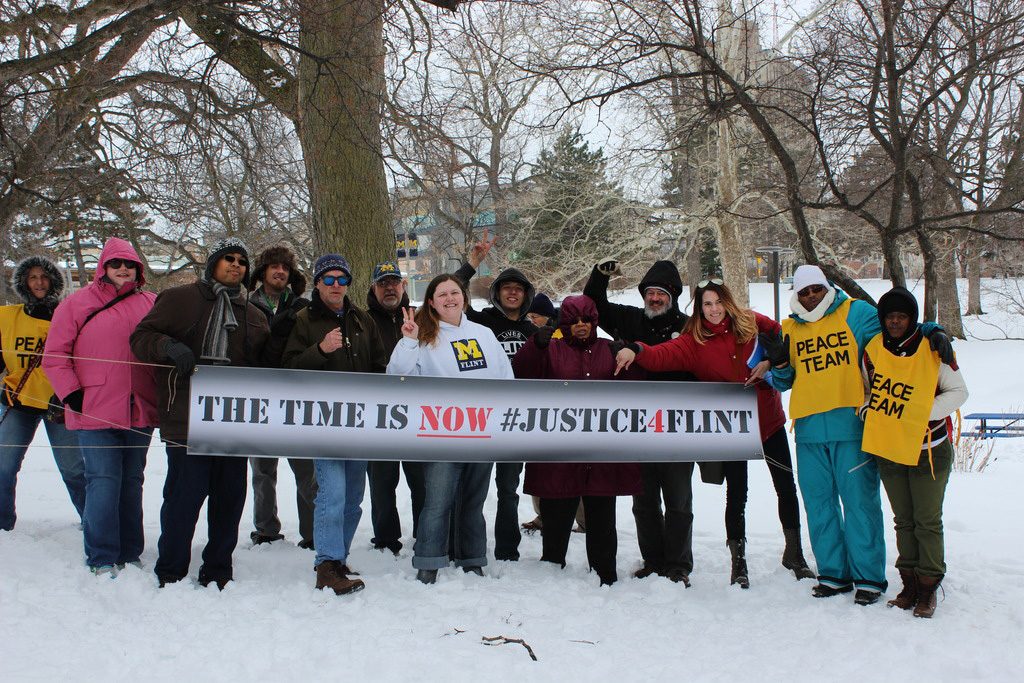
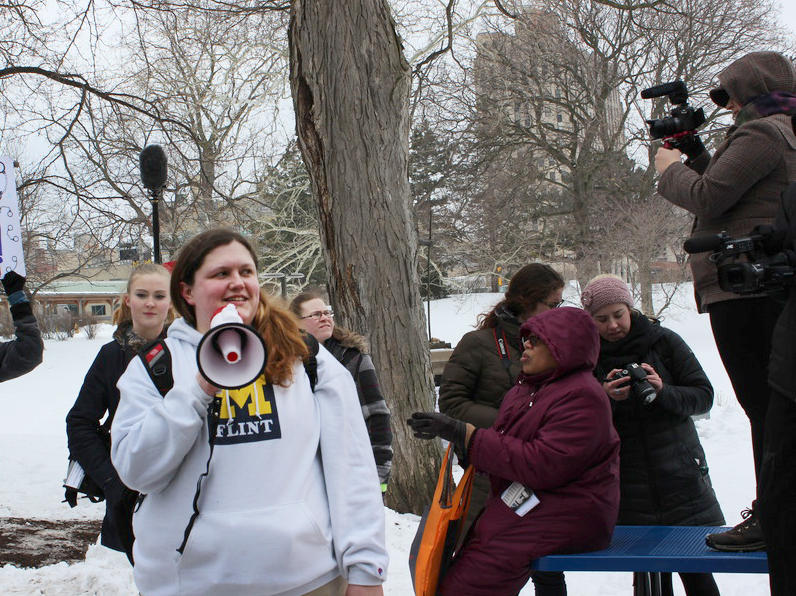
Describe a firsthand example of a meaningful learning experience at UM-Flint.
Under the instruction and guidance of Dr. Ananth Aiyer (one of my other influential professors), I wrote my senior capstone on the topic of environmental racism. This research proposal virtually brought together everything that I had learned while studying Sociology, all into one project. It was essentially the most important exercise that I did while an undergrad. This project is how I learned to apply the study of Sociology in the “real world.”
The Flint Water Crisis made me realize just how important my research and writing on the topic of environmental racism was, especially considering the real life example that we see playing out currently in Flint as we speak. My capstone was definitely a major factor in understanding the Flint Water Crisis from a sociological perspective. I would say that my capstone was just one more stepping stone in my journey back to Flint as a self-proclaimed “activist.”
What does UM-Flint do better than any other university?
At this campus, smaller class sizes allow students to easily access their instructors and receive personal attention which is a major student advantage. However, even though the class sizes are smaller on this campus than some others, students still receive the superb education that one would expect from the University of Michigan.
What advice would you give to an incoming UM-Flint freshman?
I would advise new freshmen not to rush into officially declaring their major right away. I would recommend that new students be open to taking introductory classes in disciplines that they are curious about. They may find themselves surprised at all of the options of study that the university offers.
Also, I would suggest staying in touch with professors throughout their program as well as after graduation. Staying connected with such esteemed professionals is always an asset.
Describe “the UM-Flint of the future.” What could it be? What should it be?
In the future, I would like to see more visible student activism on campus. The university should be a place that welcomes responsible student activism. Not to say that it currently does not; I would just like to see student activism more openly encouraged. College in often a critical time in our lives when we realize our own ability to make “change” and that realization should grow and be fostered. I would also like to see more engagement between students and the actual Flint community beyond the boundaries of campus. Community connection is important and there are a lot of students that do not currently live in Flint that could benefit by spending more time with in the community outside of the classroom.
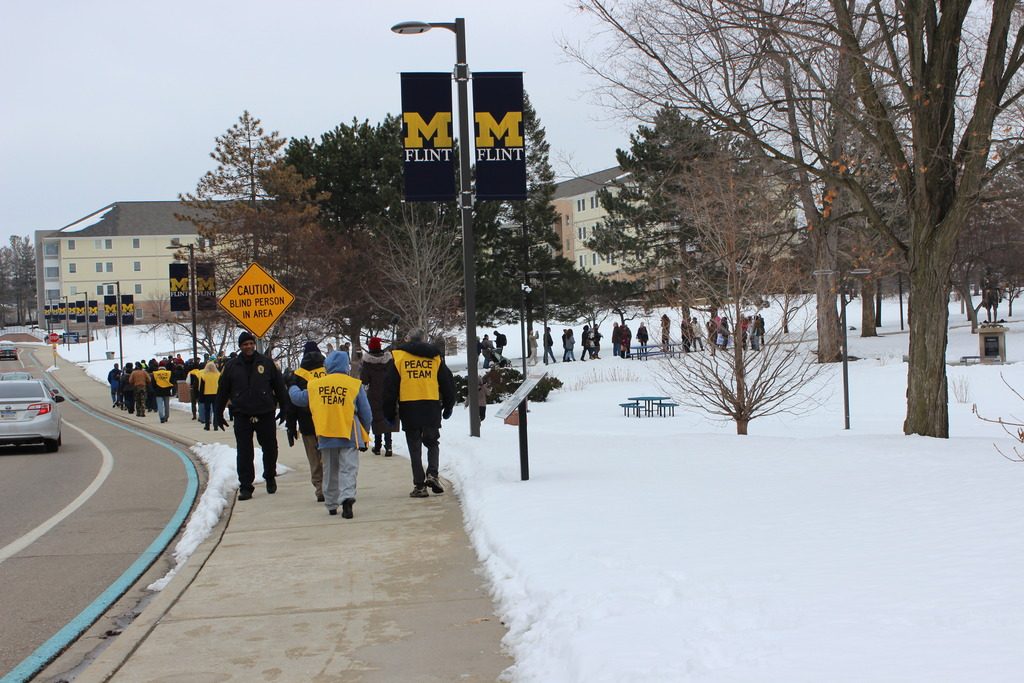
To read about the #Justice4Flint rally and to view photos, check out coverage by Stand Up, Flint!, MLive, and CBCNews. For more information about UM-Flint’s Sociology program, visit umflint.edu/SAC.
Story photos by Erin Cavanaugh.




